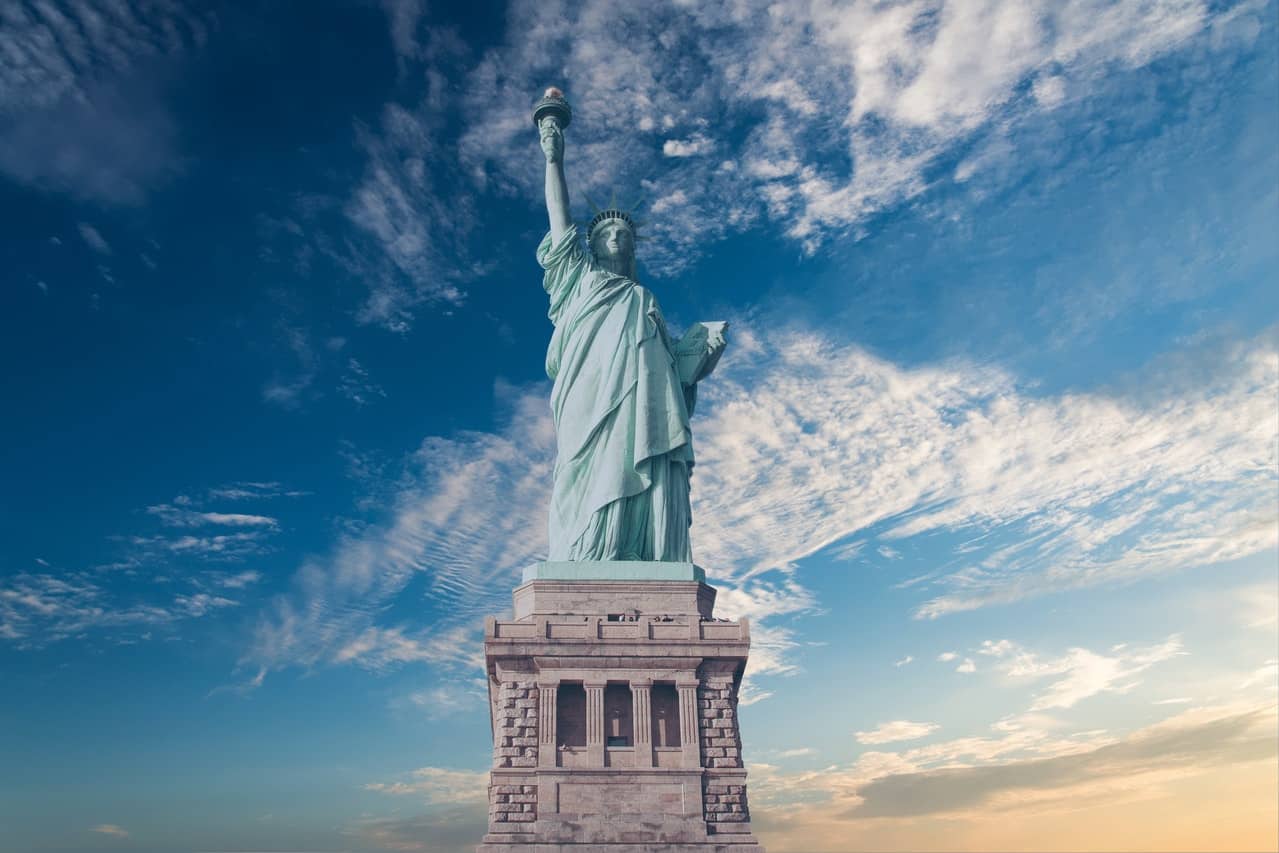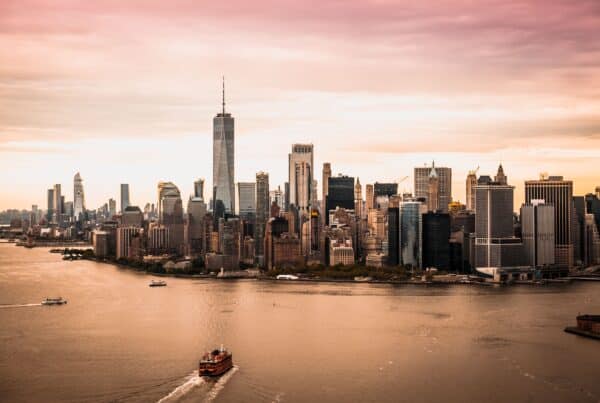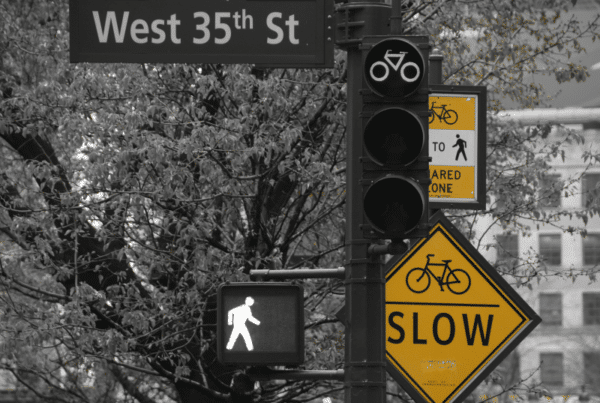Would you like to know how to start a dispensary in New York? Are you looking for help on your New York cannabis retail license application? If so, here are 8 steps you can take now to improve your chances of winning a cannabis retail dispensary license in New York.
However, if you prefer to speak with one of our consultants directly about your cannabis retail license application, click the button below to schedule a free consultation.
How to open a dispensary in New York
Here is an 8-step guide on how to start an adult-use cannabis dispensary in New York.
Step 1 – Read the Laws and Regulations
Your first step, if you want to win a dispensary license, is to read the laws and regulations that govern New York’s Cannabis Industry. By understanding the legal framework, you’ll know what it takes to score high on your New York dispensary license application. It’ll also show you if you are eligible to apply (more on this in Step 2).
Here are the two most important documents for you to read:
- Marijuana Regulation & Taxation Act (MRTA)
- Proposed Conditional Adult-Use Retail Dispensary Regulations
*You probably noticed that the regulations are ‘proposed’. The final regulations, therefore, may look different. However, you can expect the majority of the regulations to remain the same. We’ll update this page once the regulations are finalized.
Step 2 – Determine if you’re eligible to start a dispensary in New York
While reading New York’s proposed regulations for dispensaries, you’ll notice that there are strict criteria for who is eligible to apply. But don’t let that discourage you because with the right strategy you can still apply, which we’ll discuss in the next steps.
So who is eligible to apply for an adult-use conditional cannabis retail license in New York?
You can only apply for a marijuana dispensary license in New York if you meet the following three criteria:
- a Significant Presence in New York ;
- 51% of your applying entity is owned by Justice Involved Individuals, and
- the Justice Involved individual(s) must hold or have held, for a minimum of two years, at least 10% ownership interest in, and control of, a qualifying business, which means a business that had a net profit for at least two of the years the business was in operation.
Let’s define “Significant Presence” and “Justice Involved”.
How to demonstrate a Significant Presence in New York?
To demonstrate a Significant Presence in New York, your applying entity must:
- Have a principal corporate location in New York;
- be incorporated or otherwise organized under the laws of New York State; or
- the majority of the ownership of the applying entity are residents of New York State by being physically present in the state no less than 180 calendar days during the current year or 540 calendar days over the course of three years.
What is a Justice Involved individual?
New York defines a Justice Involved individual as an individual that:
- Was convicted of a marihuana-related offense (under Article 221 or Section 240.36 of the penal law) in New York State prior to March 31, 2021;
- Had a parent, legal guardian, child, spouse, or dependent who was convicted of a marihuana-related offense in New York State prior to March 31, 2021; or
- Was a dependent of an individual who was convicted of a marijuana-related offense in New York State prior to March 31, 2021.
Is this confusing for you? No worries. It is extremely complex, which is why the next step is to call in the professionals.
Step 3 – Engage a New York Cannabis Dispensary Consultant
Determining if you are eligible to apply or not is complicated enough. We haven’t even gotten to the regulations governing the application and operations of a New York Dispensary license.
Do you have time to read through hundreds of pages of laws and regulations? Why not work with our team of New York Cannabis Consultants who specialize in writing, and winning, cannabis license applications.
Let us manage your New York dispensary license application from start to finish. We have the resources to take you from pre-licensure to a fully operational cannabis retail dispensary business in New York.
Work with us to figure out how you can apply for a New York marijuana dispensary license. We’ll strategize with you to form an entity that is eligible for a conditional adult-use cannabis retail dispensary license.
Step 4 – Recruit a team for your application
Once you’ve figured out the ownership structure of your New York Cannabis Dispensary, the next step is to build a team for your application. The team you build should reflect the expertise needed to operate a safe, compliant, and profitable cannabis retail business in New York.
New York will score your team based on previous experience in the cannabis industry, retail businesses, seed-to-sale tracking, security, diversity, and more.
Does your team have cannabis experts? If not, Quantum 9 provides team recruitment services to help you build a team that will score the highest on your application.
Step 5 – Develop a Business plan
With your entity formed and team built, you’re now ready to draft a business plan for your New York dispensary license application. You can use your business plan to help communicate your endeavor to interested parties.
For instance, you can present your business plan to the municipal governing body that you intend to locate your cannabis retail business in. This will help you start to build support at the local level. Your city government is far more likely to support your plans to start a cannabis retail store if you have an elegant business plan.
You can also use your business plan to secure any additional capital. As an added benefit, you can use portions of your business plan for your New York marijuana dispensary license application.
Step 6 – Raise Capital
With your business plan in hand, raising capital becomes easier. Starting a cannabis dispensary in New York can cost anywhere between ~$500,000 and ~$1.3 million.
In fact, you’ll incur significant costs during your pursuit of a license. For instance, you may incur fees from:
- attorneys;
- team recruitment;
- marketing;
- travel;
- consultants;
- locking up real estate;
- floor plans;
- security designs;
- and more.
Additionally, the State wants to know that you have the financial ability to execute your dispensary business plans. Your application will receive a higher score with a strong financial plan.
Step 7 – Identify a location or geographic region
Since the final regulations for New York cannabis retailers are not yet published, it’s not clear whether you’ll have to secure a location for your business before applying.
The proposed regulations, however, indicate that New York may create “regional geographic zones” for the scoring of applicants. In this case, during your application, you will rank a number of preferences of regional geographic zones to be considered for a license.
If this is the case, then you will not have to secure a location for your application. Instead, New York will issue a conditional license and then you’ll have a certain time period to secure a location and obtain city approval.
However, when ranking the regional geographic zones in order of preference, keep the following in mind:
“For regional geographical zones where there are more applicants than available licenses, the Office may select from eligible applicants who indicated first preference for the given region based on weighted scoring of the evaluation criteria set out above. In the event there is a tie between two or more candidates or there are more applicants than available licenses after the evaluation criteria has been applied, the Office is authorized to use a random selection process to identify the final applicants to recommend to the Board for licensure.“
Step 8 – Apply for a conditional New York Retail Dispensary License
Finally, the last step is to sit down and write your adult-use New York cannabis retail license application. Although the final marijuana retail application instructions are not published, we can predict what the application will look like based on the proposed regulations.
Like most markets, New York’s conditional cannabis retail dispensary application will likely require you to submit the following:
- Business Plan;
- Operating Plan;
- Financial Plan;
- Security Plans;
- Inventory Tracking plans;
- Workforce Development Plan;
- Community Impact Plan;
- Diversity Plan;
- Standard Operating Procedures for:
- Quality Assurance/Control;
- Reporting Testing Results;
- Recalls;
- Inventory Control;
- Recordkeeping;
- Dispensing;
- Waste Disposal;
- Accounting and Tax Compliance;
- and more.
Yes, that’s a big list. Your New York dispensary license application page count can easily reach thousands of pages.
Have you written marijuana SOPs and operating plans that comply with New York laws and regulations? You’ll compete against the best attorneys and cannabis operators for the license.
Why not partner with cannabis application writers who can outcompete these fierce competitors? Our success rate is one of the highest in the industry (90.12%).
In the end, once your application is complete you’ll submit your adult-use New York marijuana retail license application on the State’s website and pay the $2,000 non-refundable application fee.
Conclusion
We understand how frustrating it can be trying to understand the cannabis regulations in New York. There are many moving pieces and a lot of capital at risk. But if you’ve taken the steps above, you’re already at an advantage.
To further increase your chances, schedule a call today to learn how we can take the stress out of applying for a New York dispensary license. Let us do the heavy lifting and increase your odds of winning a New York dispensary license.
Additional information related to cannabis dispensary licenses in New York
Selling or Transferring Ownership of Dispensary License
Yes, you can sell your adult-use New York Dispensary License. You must, however, ensure that 51% of the license remains owned by Justice-Involved Individuals during the first four years of receiving your license (aka conditional period).
So if you sell to a buyer who will meet the 51% justice-involved ownership requirement, then that is acceptable.
After the conditional period, you can sell your New York marijuana retail license to anyone.
Ownership Limitations
New York will limit the number of conditional adult-use retail dispensary licenses that you can have ownership in. In short, you cannot have a direct or indirect financial or controlling interest in more than three New York dispensary licenses until the conditional period ends (i.e. 4 years after licensure).
Additionally, if you are an owner of New York cannabis dispensary license, you cannot also have ownership in any other type of New York cannabis license.
However, you are allowed to be a passive investor (i.e. less than 5% ownership) in an unlimited number of licenses.
What is a marihuana-related offense in New York?
A New York marihuana-related offense means a marijuana or cannabis offense under Article 221 or Section 240.36 of the penal law.
It also includes any offense that is eligible to be sealed or expunged pursuant to Chapter 131 of the Laws of 2019 or the Act or any offense identified by the Office to be a marihuana-related offense.
Below is a list of New York marijuana related offenses for justice involved individuals under Article 221:
| Section | Offense | Class |
|---|---|---|
| 221.00 | Marihuana; definitions. | * 7/5/2021 |
| 221.05 | Unlawful possession of marihuana. | VIOLATION |
| 221.10 | Criminal possession of marihuana in the fifth degree. | B MISD |
| 221.15 | Criminal possession of marihuana in the fourth degree. | A MISD |
| 221.20 | Criminal possession of marihuana in the third degree. | E FELONY |
| 221.25 | Criminal possession of marihuana in the second degree. | D FELONY |
| 221.30 | Criminal possession of marihuana in the first degree. | C FELONY |
| 221.35 | Criminal sale of marihuana in the fifth degree. | B MISD |
| 221.40 | Criminal sale of marihuana in the fourth degree. | A MISD |
| 221.45 | Criminal sale of marihuana in the third degree. | E FELONY |
| 221.50 | Criminal sale of marihuana in the second degree. | D FELONY |
| 221.55 | Criminal sale of marihuana in the first degree. | C FELONY |








